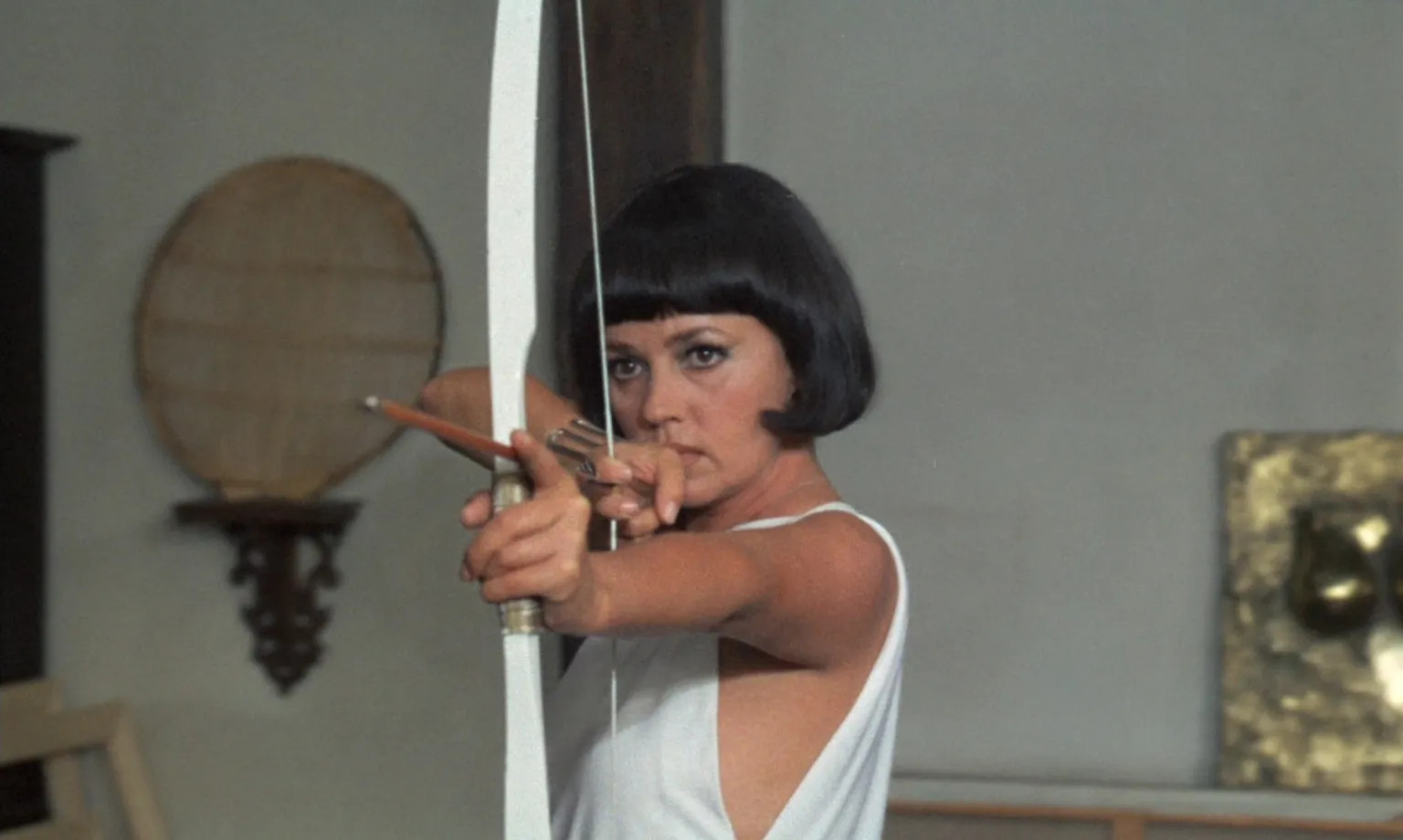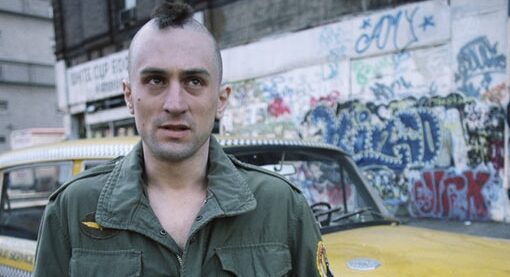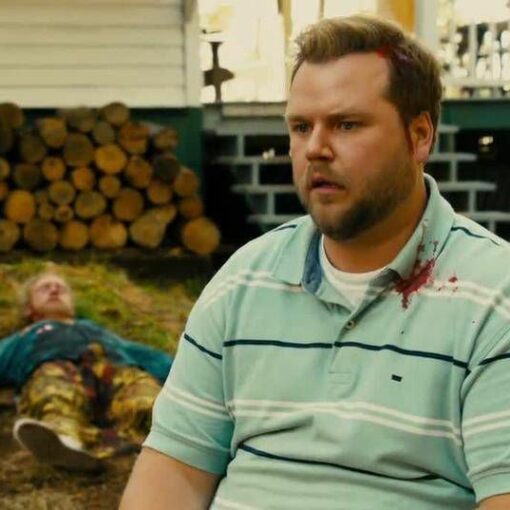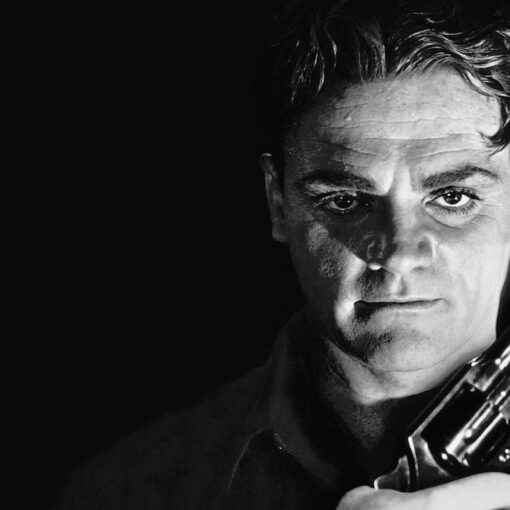The Bride Wore Black (La Mariée était en noir) is a 1968 crime drama by Francois Truffaut.
The Story: after witnessing the love of her life murdered on her wedding day, the bride (Jeanne Moreau) overcomes her depression and vows bloody revenge. One by one she attempts to track down and kill a group of men responsible for the death of her groom.
The Bride Wore Black has quite a reputation. Possibly because it counts among Truffauts more accessible, more pop endeavours and presents an aesthetic as well as entertaining on screen experience. A fantastic score by Bernard Herrmann (Twisted Nerve, Psycho) helps propel this cute revenge movie to cult status. Even though the story seems rather simple, Truffaut peels it back like an onion. The audience is left puzzled as the movie starts off with a rather anonymous character killing unknown other characters. It is only with each flashback that we learn a little more ach time about the nature of this rampage of revenge, and both the huntress and her prey.
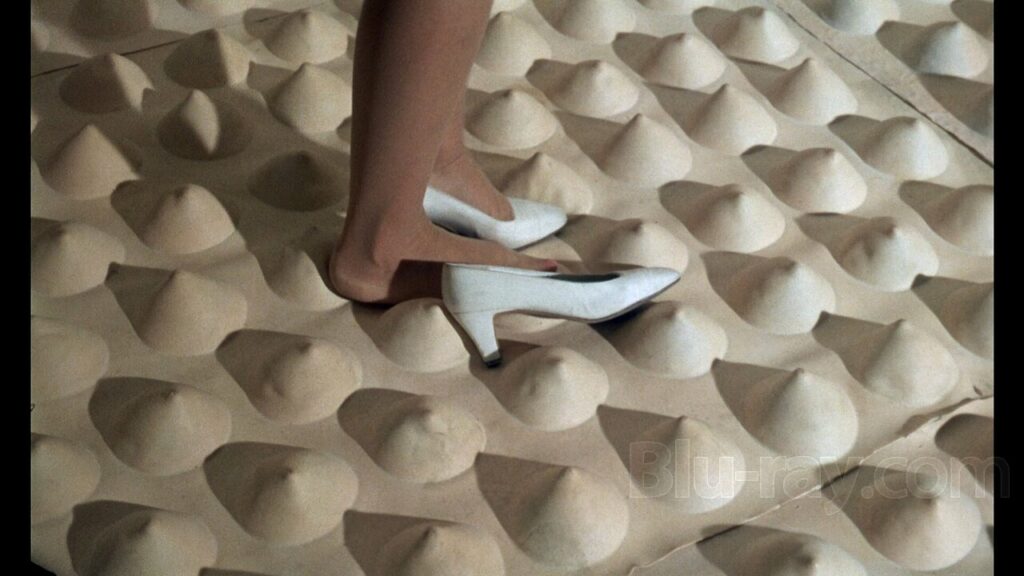
In rolling out this drama slowly, feeding the bride’s motivation piecemeal, Truffaut, unlike Tarantino (who gave it to us, point blank – literally – in his fantastic revenge epic Kill Bill) chose a more nuanced approach closer to how Hitchcock or de Palma would do it, while Tarantino’s presented a more modernist approach chosen by almost every revenge movie that came after it. The most glaring reference Tarantino made to Truffaut is of course the hand written list of names the bride keeps to plan out her roaring rampage. But speaking of Hitchcock, it is precisely this connection that is at play here. Truffauts film is an adaptation of pulp crime maverick author Cornel Woolrich‘s writing, who also authored the short store that would later become Rear Window.
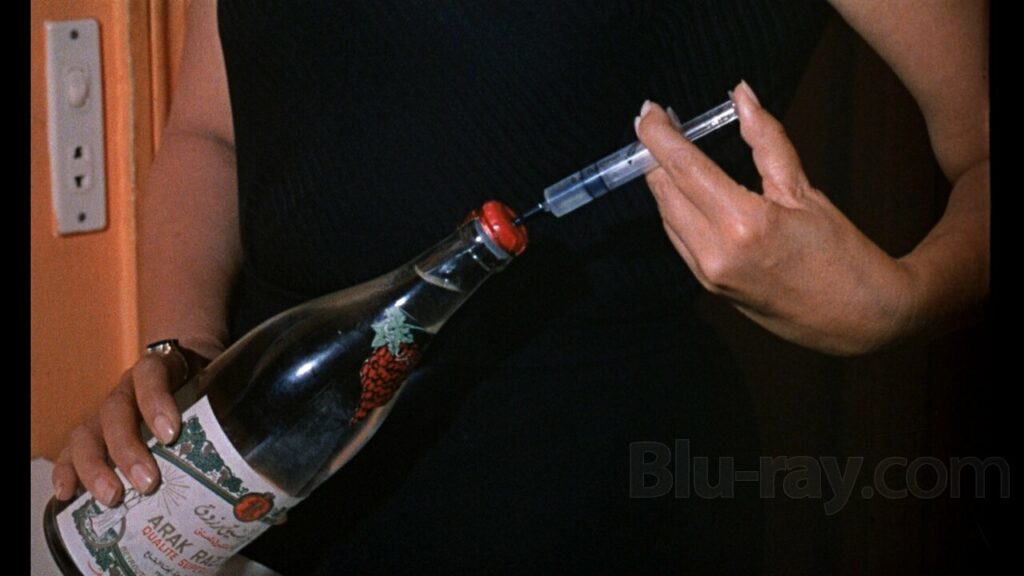
As Radiance writes, “Truffaut’s film is a deliciously entertaining tale that was one of the director’s biggest hits.” Now where does this appeal come from? I think there’s certain quirks in the story that makes The Bride Wore Black just fantastically interesting and relatable, if not… relevant. One of it is that she is obviously not a superwoman, the other is that as she circles in on her penultimate victing, an artist, a friend starts to suspect something. And the victim before, while sending investigators on a wrong track by using a child witness, it is a politician (Michael Lonsdale of Moonraker) that presents Truffaut with the opportunity to feed us even some socio-political commentary.
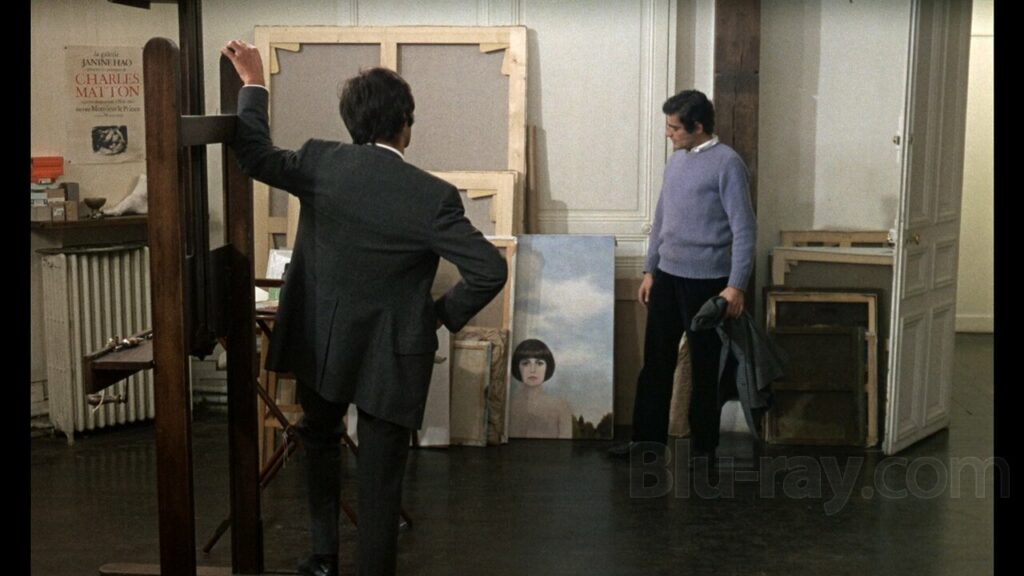
This however, brings me to a very important additional quirk of this story. All five victims have certain weaknesses and specific traits that make them appear “deserving” of their demise. Be it vanity, arrogance, chauvinism or other character traits, we learn of this group of perpetrators not as a group of die hard killers, but everyday losers who kind of made it in life only because murdering the Bride’s groom didn’t end their careers because they were able to cover it up.
As for the bride, Moreau (Jules et Jim) does a fantastic job at playing the smart, playful and yet unscrupulous killer. She’s pretty, but she’s also a face in the crowd, one that could be mistaken for another. It is her acting skills, costumes and research that make her a deadly infiltrator and layer of traps. Hers is not a trained, athletic assassin, like Uma Thurman‘s bride. Hers is the regular housewife turned woman with nothing else to lose. That makes her even deadlier.

The Bride Wore Black presents a great example of late 60s French cinema. Unlike some other representatives it is exceptionally accessible even for audiences less familiar with the faces, styles, rythms or moods of a majority of films from during, before or after the French New Wave. Truffaut gives us a harsh portrait of a woman on the lose, a crime story told from the perspective of a mute observer of her killings. A story unraveling in just little over 100 minutes from back to front, and while brutal, not overly graphic or sensationalist. The movie offers great style and atmosphere, a great soundtrack and some really creative adventures. This is, I admit it, the first time I am watching this movie, and I am already a fan.
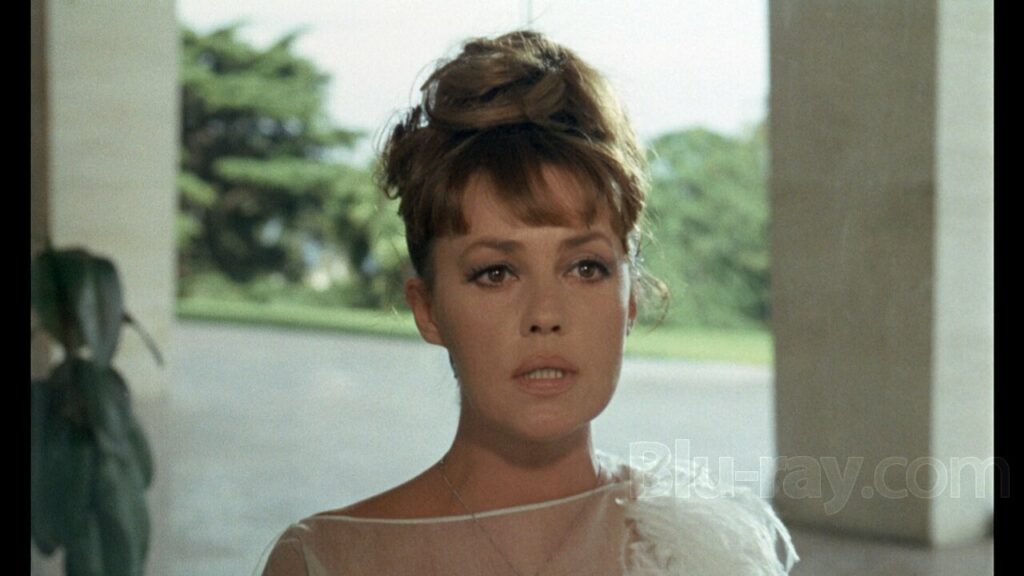
Kudos to Radiance Films for bringing it to UK audiences in a shelfworthy edition. While – to get it out of the way – it doesn’t offer an audio commentary like the US disc does, it’s a carefully crafted BluRay that sits well within the upstart label’s recent slate of wonderfully curated films arriving on BluRay (some of them for the first time). The transfer looks like it is based on a 2K scan, and it offers some great contrasts and colors, with popping blacks and realistic skin tones. While it lacks some detail only a much more elaborate 4- or 8K scan might offer, it neatly preserves film grain and nuance, with a pristine picture free of blemishes but shapes and lines intact and largely free of edge enhancement or other digital filtering that often turns old movies into a next sequel to the Lego movie.

The audio sounds nice as well, with the original French track presented uncompressed here plus optional English subtitles (which are absolutely fine, as far as I am able to judge it with my limited French skills).
There are a number of very interesting extras on this disc, too. Up first is a 12-minute interview with Truffaut dating back to 1968. Next is one with Moreau (5 mins) from a year later. There’s a newly filmed interview with filmmaker Kent Jones discussing the movie (15mins) and one with critic Barry Forshaw looking more specifically into the source material (9mins). There’s the original trailer and then, what I find the most interesting extra, a fantastic early 1958 short film by Jacques Donoil-Valcroze starring Jean-Claude Brialy, called Les Surmenés (25min). Brialy plays one of the Bride’s victims. The disc is presented in a reversible sleeve and there’s also a limited edition booklet in there (didn’t have that to my avail) with new writing on the film and archival writing by Truffaut etc. All in all a great edition!
Buy now: From Amazon.co.uk … and in the USA an edition from Amazon.com (Kino Lorber’s release)
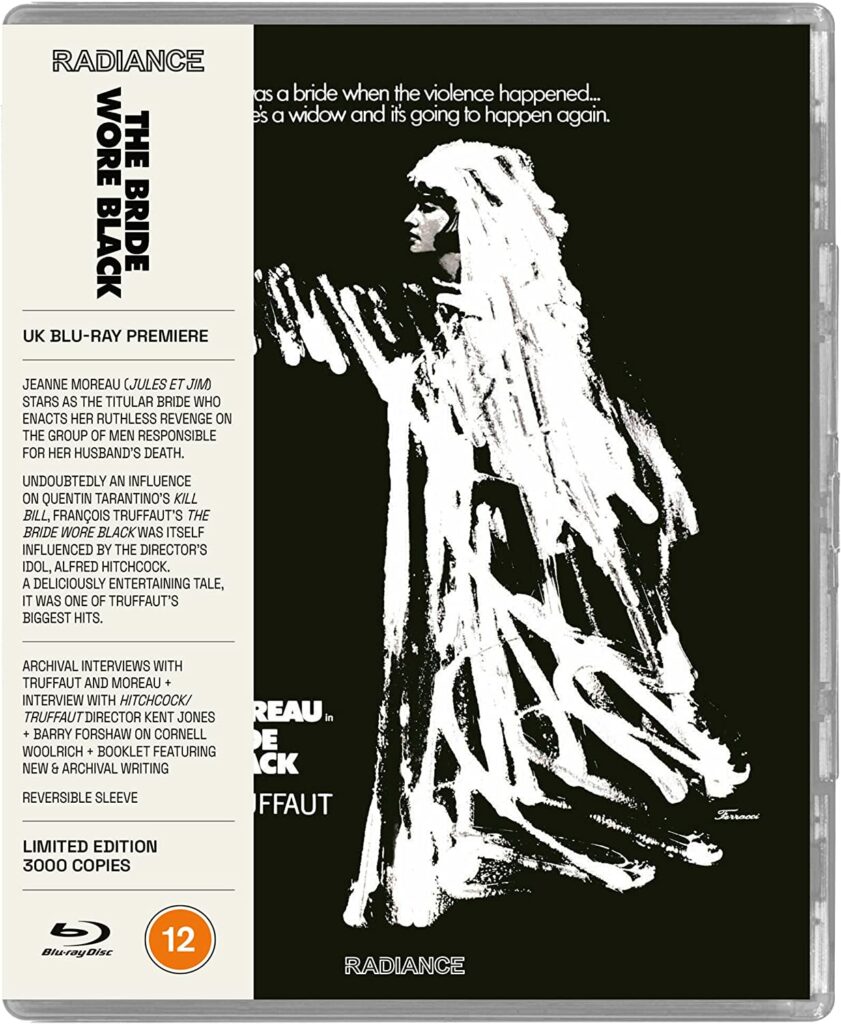

Furious Cinema’s Radiance Films review series. Click to read more.

